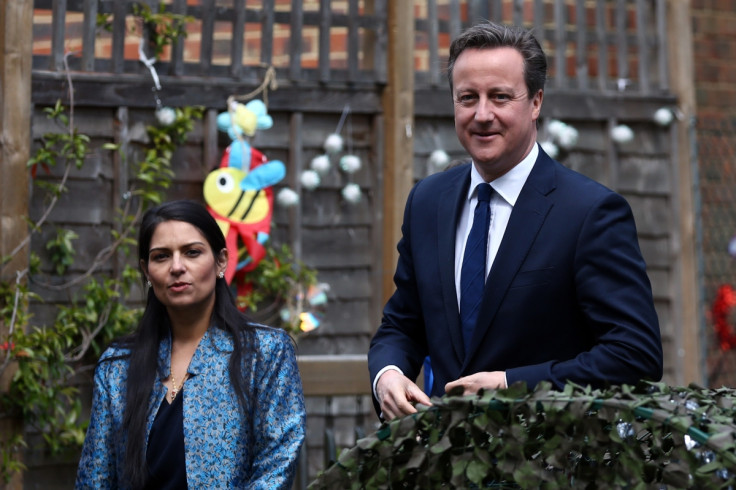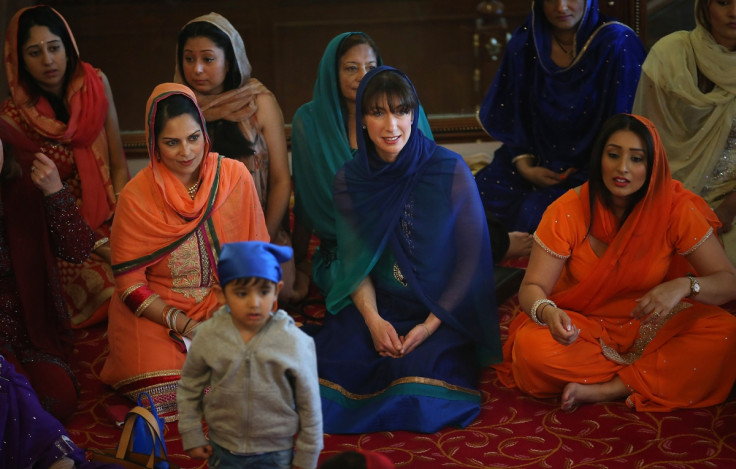EU referendum: Priti Patel typifies immigrants who become Little Englanders as they prosper

Last November, in a green room at the BBC, a Tory MP in the Brexit camp asked me: "How do you think the ethnic minorities will vote?" I didn't have an answer in my pocket but the question is an important one and not asked often enough. Black and Asian voters are now as split as the rest of the country.
More than ever before, our votes can affect results in local and national elections, which is why white candidates wear silly turbans and mug up on Bollywood movies, showing up outside temples, mosques and multicultural neighbourhoods. In the May elections, I even saw one female Conservative local candidate in a Midland town conspicuously clutching a Quran.
Until the late 1990s, almost all immigrants and their children voted for the Labour party. It was a done deal. Post-election researchers and analysts found little deviation from this consistent and solid voting pattern. Now our democratic preferences are more varied and unpredictable. These are signs of democratic sophistication and maturity – and also growing economic and social divisions.
I came to the UK from Uganda in 1972, the year dictator Idi Amin expelled all Asians from the country where our ancestors had been since the 19<sup>th century. The parents of Priti Patel, the Tory employment minister, are also exiles from Uganda. Her father set up a chain of newsagents and got rich. She is right-wing, illiberal and wants to keep out migrants whose need is often greater than ours was in 1972; I am left of centre, liberal and pro-immigration, for obvious reasons. Patel is now the poster girl of the EU quitters while I back the EU, admire its institutions, values, laws and pan-nationalism, the European Court of Human Rights and hard-won EU labour and gender rights.

Patel represents those Asian, Arab, African and Afro-Caribbean citizens who valiantly assimilate, or become Little Englanders as they get more prosperous. As does barrister and Ukip MEP Steven Woolfe, who is mixed race. He claimed in a speech that millions of black and Asian Britons want to leave the EU because: "They want prosperity, they want their culture protected, they want freedom and also want to be safe."
These two politicians are smart and know how to effectively divide and influence minority voters. In his speech Woolfe added: "If granny wants to come over from Pakistan or India for a wedding, they have more difficulty in terms of getting visas than would a granny from either Spain or France." Such messages play well in urban areas where immigrants settled way back in the sixties and seventies.
As immigration rules get ever more draconian and these settlers get more resentful, they impugn not the rule makers, but EU migrants, the new enemy within: 'They' get in while Commonwealth applicants are kept out. The churlishness is irrational and ludicrous. Do they really think that if we leave the EU, Britain will become less hostile to those from the global east and south?
Patel represents those Asian, Arab, African and Afro-Caribbean citizens who valiantly assimilate, or become little Englanders as they get more prosperous.
I often go out and talk to residents in West London about the referendum. Native Brits seemed more for than against the EU, maybe because Eastern European workers are appreciated here. Bryan, who runs a small hardware store, said: "My business has gone right up – they need stuff I have and they are honest customers. I can't stand the Somalis – no work ethic. Caribbeans are my mates. But I think the EU has revived this area."
So I talked to Abroon from Somalia, who works in a gym. He has many Polish friends but wants out: "Too many of them coming. No houses for them. Look how many shops they have. Not good. Send them back. They not refugees [sic]."
As immigration rules get ever more draconian and these settlers get more resentful, they impugn not the rule makers, but EU migrants, the new enemy within
Suresh Patel, a newsagent who has a picture of Priti Patel on the wall, said: "Let us get out [of the EU]. These Europeans must go home. So then our people can come. Our culture fits better. My brother's family wants to move from India. No chance today. England and [India] have a long relationship. The country got rich from the Raj. These people, who are they? Show them a picture of the Queen and they will not know her."
Mr Hussain, the Turkish grocer, doesn't like the EU because they "hate Turkey".
Even after moving across several seas, tribal loyalties remain in place. Internationalism is a terrifying threat.
In contrast, the local college is a buzzing, cosmopolitan hub. Here, second- and third-generation children of migrants are almost wholly for the EU. Rubina, whose parents are from Pakistan, is studying business management: "I travel all around Europe. Love it. Imagine if Pakistan, India and Bangladesh could come together? They [Brexit voters] have this amazing union and want to leave? How stupid."
A Tanzanian British student, Balthazar, agreed: "I want Kenya, Uganda and my country to make a union too. Look, the Europeans had so many wars for hundreds of years. Then they came together. It is a miracle. The EU is good. It is strong and the UK must stay in. But they don't care what we think."
Ethnic minority voters feel left out of the current EU debates. Key politicians from the In and Out camps need to talk and listen to people of colour. We matter. Our votes will determine the result.
Yasmin Alibhai-Brown is a journalist, columnist, broadcaster and author. Her most recent book is Exotic England
© Copyright IBTimes 2025. All rights reserved.






















